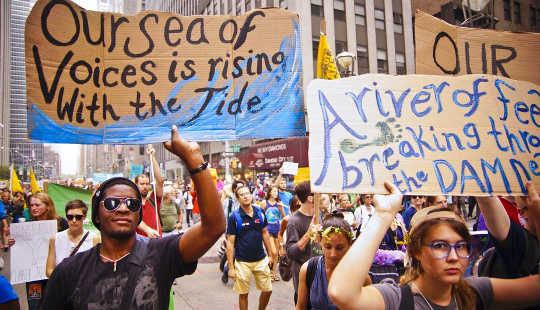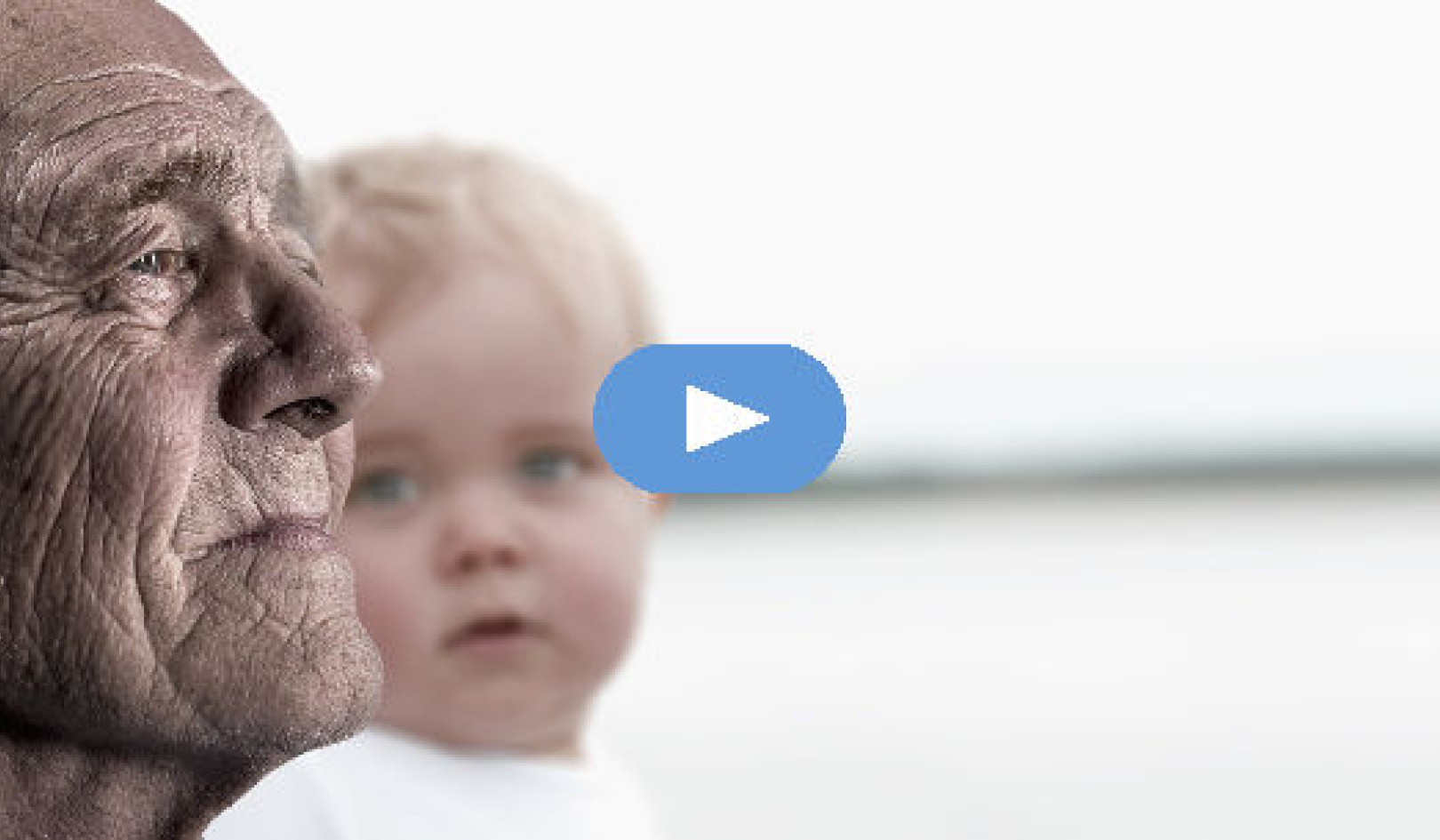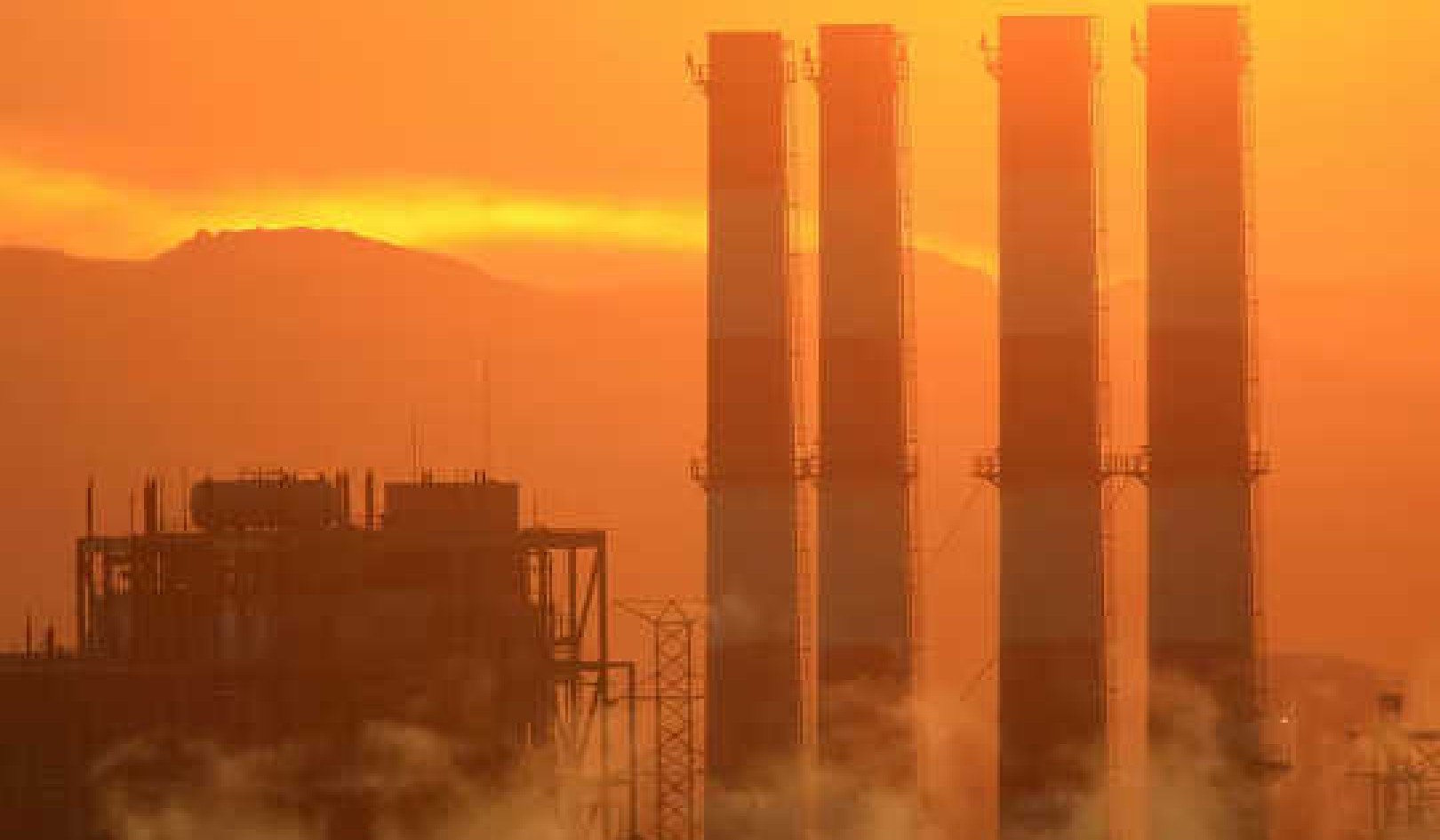
Talking ‘bout my generation: Younger people are concerned with climate, but how engaged are they politically? Joe Brusky/flickr, CC BY-NC
When Secretary Hillary Clinton sought to mobilize millennial voters, she held a rally with Al Gore in Florida and focused heavily on climate change.
On one level, this is a curious move. Al Gore’s presidential bid was in 2000, when very few millennials (a generation born between 1982 and 2000) were even old enough to vote. In addition, relatively few young people say “the environment and climate change” is the most important issue to them this year. And climate change has received almost no attention in the debates, nor much media coverage in major outlets.
So why focus on climate change as part of the final push to mobilize millennials, many of whom are still recovering from the emotional roller coaster of Bernie Sanders’ rousing but ultimately unsuccessful campaign?
To find the answer, I analyzed data from Tufts University’s Tisch College/CIRCLE Pre-Election Millennial Poll that explored millennials’ attitudes toward a variety of issues, institutions, movements and candidates.
The data show that climate change is one of the very few issues that most millennials can get behind this election season, even though it doesn’t rank as the top concern. Whether enough millennials will turn out in large numbers or influence the result of the election still remains to be seen. But the data show that climate change in the future has the potential to be a unifying issue across party lines, and one that millennials can directly connect to their personal lives.
More popular than Bernie
Although Americans are increasingly more likely to accept climate change as fact and a serious threat, climate change has not been a top priority for the general electorate. Out of three presidential debates, the one mention of the environment that brought the most attention was the perfectly reasonable question about balancing clean energy and job security for many who work in fossil fuel energy industry, posed by the reluctantly famous internet meme Ken Bone.
As the director of Tisch College’s Center for Information and Research on Civic Learning & Engagement (CIRCLE), which focuses on young people’s civic learning and engagement, I found that millennials have distinct views on climate change. In our survey, 26 percent named climate change as one of the key dangers our world is facing, in the middle of our list, after “foreign terrorism,” “corruption,” “too much power to select few” and “prejudice against people of different ethnicities.” By contrast, climate change ranked next to last in a Gallup poll that surveyed all Americans’ list of concerns.
Although climate change does not top the list, it is important to point out that most of the issues that do tend to be prioritized by a specific, and partisan group of millennials. For example, “violence against people of color” was named by 67 percent of black millennials, 27 percent of Latino millennials and just 16 percent of white millennials as a priority. By contrast, climate change is not a divisive issue – support for it crosses all political parties and racial groups.
Call themselves environmentalists?
The millennials who are part of the environmental movement are highly politically engaged, a rarity for a generation that prefers to address social issues through actions that have direct impacts, such as community service, over political involvement. Millennials are not lazy or apathetic – they just want to invest their energy into a cause that they can impact.
Because of millennials’ tendency toward direct impact, it is no surprise that most shy away from political engagement and find political discussion to be off-putting. Washington politics have not been exactly responsive or effective, at least based on the number of bills they have passed, and many young people do not feel their voices are heard or taken seriously.
For those millennials who do consider themselves “part of” the environment movement – a relatively small 8 percent – their level of political engagement is extraordinary. These environmental activists may be catalysts for change who seek to educate and mobilize their less engaged, but supportive peers who are ready to turn their personal action into votes.
An additional 33 percent are not part of, but support, the movement, and they come from diverse racial, educational and ideological backgrounds, though they do lean Democratic. Support even comes from a seemingly unlikely group – 27 percent of Republicans (including “lean” Republicans) support the movement. Even among supporters of Donald Trump, the least supportive group, just 16 percent say that they would oppose the environmental movement.
This wide support is significant because millennials have found that their desire to make a positive impact on a personal level intersects with policy solutions and governmental actions, such as clean energy policies for consumers.
And if they vote in large numbers, millennials will express their support for the environment. According to a survey of millennials in battleground states by NextGen, 75 percent of millennials would be more likely to vote for a candidate who wants to “transition U.S. from dirty fossil fuels to clean energy like wind and solar.” Also, 73 percent of voters would be less likely to vote for a politician who “wants to to eliminate the Environmental Protection Agency.”
Faith in political process
It’s a bit too early to say that climate change is the unifying call for the millennial generation, but it may be in the near future. It’s striking that most (75 percent) millennial voters consider supporting transition to renewable fuel as a significant reason to vote for a specific politician.
To engage them on climate, politicians need to argue that we can mitigate the negative impact of climate change, and to link that sentiment to voting, making the case that one effective way to drive change is to to vote for candidates who will work to protect the environment.
However, our political leaders need to come up with ways to restore the trust in civic and political institutions among millennials who question the authenticity of the establishment and political system.
![]()
About The Author
Kei Kawashima-Ginsberg, Director, Center for Information and Research on Civic Learning and Engagement in the Jonathan M. Tisch College of Citizenship and Public Service, Tufts University
This article was originally published on The Conversation. Read the original article.
Related Books:
at InnerSelf Market and Amazon























